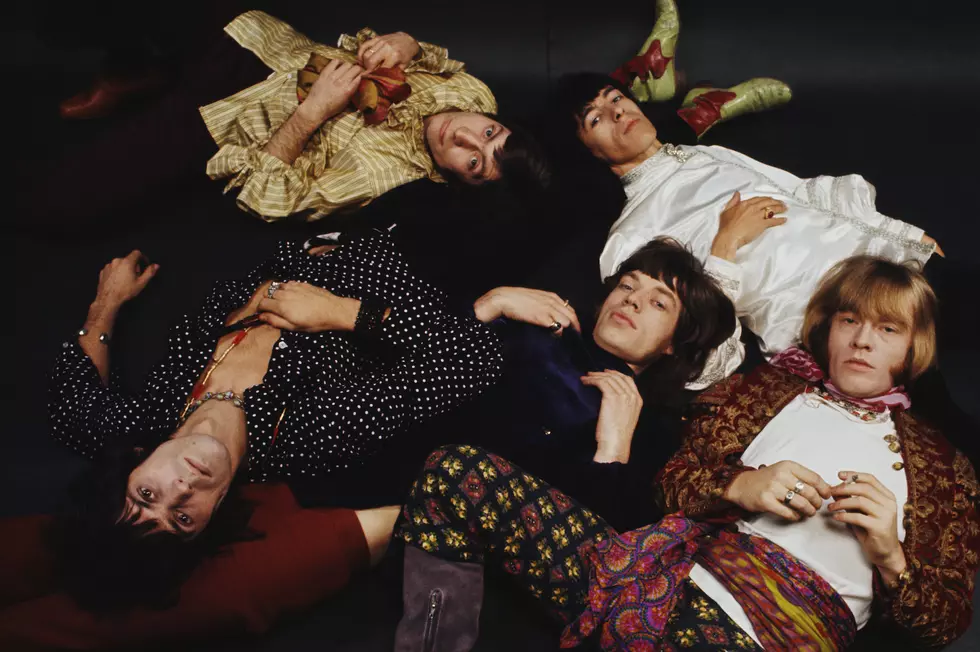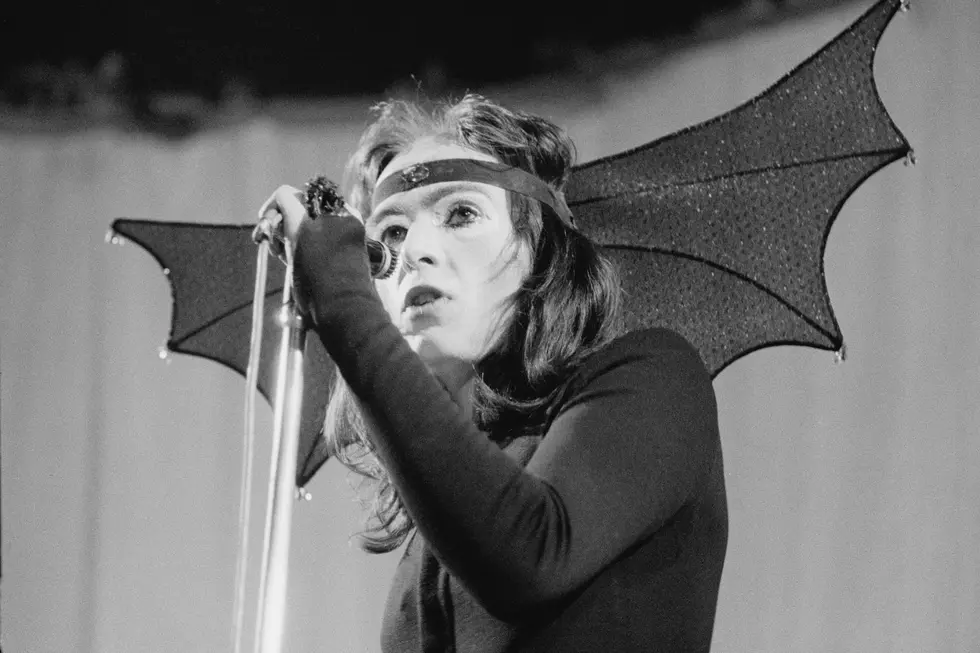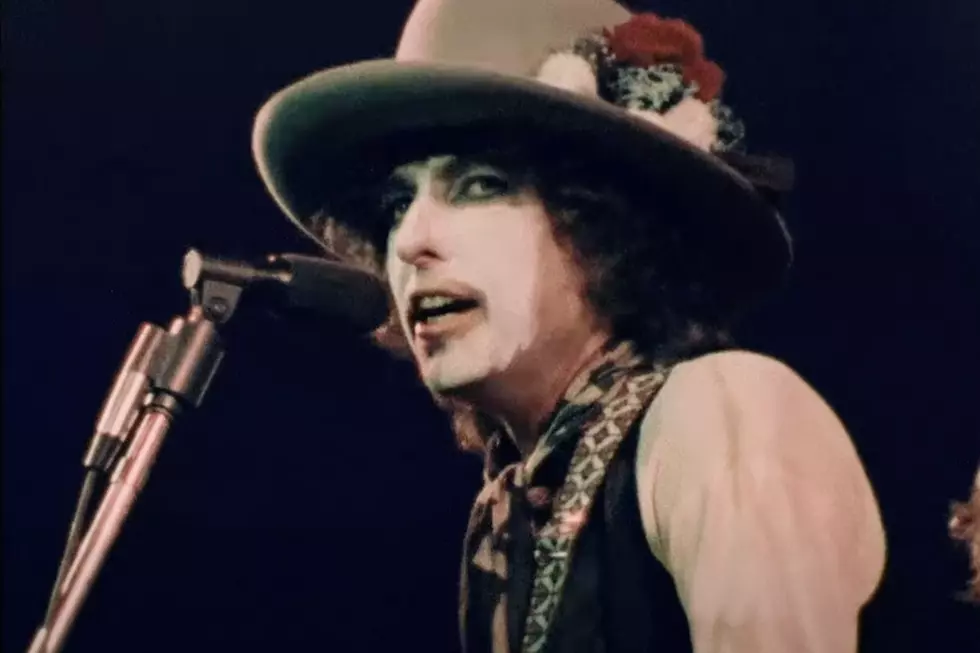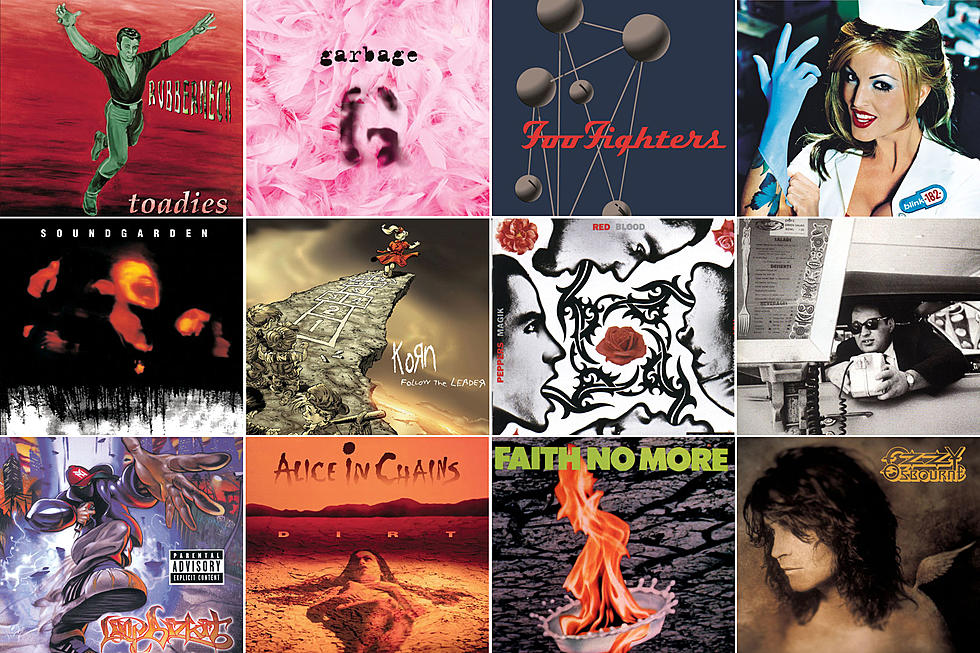
The 10 Weirdest Rolling Stones Songs
The Rolling Stones are well known for their dogged endurance. Very little deters them.
It's an unwavering attitude that applies to their touring schedule as much as it does to their willingness to think outside the box. "The more ways you do it, the better it is because you get more variety," Mick Jagger said in a 2007 interview.
The Stones are often described as the quintessential rock 'n' roll band, but that didn't stop them from experimenting with different sounds – from blues and country to psychedelia and disco. Some of those experiments have paid off; others have proved more puzzling. The most notable find a home in our list of the 10 Weirdest Rolling Stones Songs.
10. "Goin' Home" (from 1966's Aftermath)
Into the mid-'60s, hit songs hovered around the three-minute mark. Anything beyond that was generally considered too lengthy for Top 40 radio. Even when it came to selecting recordings for albums, longer songs were often passed over for shorter, more commercially friendly options. Some artists began to challenge this notion as the decade progressed, recording tracks that ran for 10 minutes or more. The Rolling Stones' first venture into this territory, "Goin' Home," was originally made up of just the first two and a half minutes. "We tried to make singles as long as we could then because we just like to let things roll on," Keith Richards told Rolling Stone in 1971. "No one sat down to make an 11-minute track. ... We just happened to keep the tape rolling."
9. "Something Happened to Me Yesterday" (from 1967's Between the Buttons)
"Something Happened to Me Yesterday" starts with an unexpected trumpet intro before settling into a jaunty, Music Hall-like groove. The trumpet reappears a little later, accompanied by trombone and tuba, all apparently played by Brian Jones. This is best known, however, as the first Stones song to feature a lead vocal sung by Keith Richards, who takes over from Jagger for a few lines. A strange parting message is spoken by Jagger at the end of the song: "Well, thank you very much, and now I think it’s time for us all to go. So from all of us to all of you, not forgetting the boys in the band and our producer, Reg Thorpe, we’d like to say, God bless. So, if you’re out tonight, don’t forget if you’re on your bike, wear white. Evening, all." Andrew Loog Oldham was the actual producer.
8. "Sing This All Together" (from 1967's Their Satanic Majesties Request)
Several cataclysmic shifts have occurred throughout the history of recorded music. One of them is certainly the release of the Beatles' Sgt. Pepper's Lonely Hearts Club Band, which combined heavy psychedelic imagery with experimental instrumentation. The Rolling Stones, like many bands at the time, attempted their own version. Their Satanic Majesties Request wasn't as well received as Sgt. Pepper, with Richards later describing the LP as a "load of crap." The opening song, "Sing This All Together," is a deliriously disorganized cut that might be better suited for a carnival ride than an album by one of the biggest bands in the world.
7. "Cherry Oh Baby" (from 1976's Black and Blue)
The Rolling Stones released a handful of reggae-inspired tracks throughout their career but the oddest may be "Cherry Oh Baby," their cover of a 1971 song by Eric Donaldson. The Stones were heavily influenced by reggae in the mid-'70s, as evidenced by several tracks on 1976's Black and Blue. "I had all those [reggae] records in France with me when we moved there and when we were recording tracks for Exile on Main St. at Keith's house," Charlie Watts said in According to the Rolling Stones. "Mick used to have them, as well. I'd play him 'Cherry Oh Baby' or he'd play one to me." There's a slightly disjointed quality to the Rolling Stones' version, with Jagger occasionally slipping into a subtle Jamaican accent.
6. "Might as Well Get Juiced" (from 1997's Bridges to Babylon)
To be fair, a lot was happening on 1997's Bridges to Babylon, the Stones' attempt to maintain some relevancy in the increasingly changing music industry. Jagger and Richards were rarely in the studio at the same time during the making of the album. "There is a great danger when you've done all these albums ... that you think you know how to make a record," Jagger told Rolling Stone back then. "I don't want to do that first thing that comes to mind." So they didn't. Unfortunately, the attractively bluesy "Might as Well Get Juiced" is layered with electronic additions that haven't aged well.
5. "Continental Drift" (from 1989's Steel Wheels)
"Continental Drift" stands out on Steel Wheels for its distinctly Middle Eastern flavor. The track features the Master Musicians of Joujouka, a Moroccan group the Stones traveled to Tangier to record with. It was a full-circle moment for the band: Brian Jones had recorded the Master Musicians back in 1968, even releasing an acclaimed live album, Brian Jones Presents the Pipes of Pan at Joujouka.
4. "2000 Light Years From Home" (from 1967's Their Satanic Majesties Request)
As Richards explained in 1971, the Rolling Stones didn't exactly plan for Their Satanic Majesties Request to turn out the way it did. "It wasn’t meant to be that ambitious, it just got that way," he said. For all its psychedelic shading, "2000 Light Years From Home" was one of the few tracks from the album that translated to the stage. The Stones regularly performed the song on their 1989–90 Steel Wheels/Urban Jungle Tours and performed it at their 2013 Glastonbury appearance.
3. "I Just Want to See His Face" (from 1972's Exile on Main St.)
Like most of Exile on Main St., there's a general murkiness to the slight "I Just Want to See His Face." The classic album was recorded in a makeshift basement studio in France, so much of that tone came naturally. (The huge amount of drugs being consumed at the time also aided in the LP's sound.) "I Just Want to See His Face" is mostly a loose jam that leans in a slightly gospel direction but doesn't build toward anything in particular. Somehow, it still fits in perfectly with Exile's lawless complexity.
2. "Too Much Blood" (from 1983's Undercover)
"Too Much Blood" is deceptively cheerful for a song about a brutal murder scene that turns cannibalistic. "Cut off her head / Put the rest of her body in the refrigerator, ate her piece by piece / Put her in the refrigerator, put her in the freezer," Jagger sings. He wrote the song about a 1981 criminal case involving a Japanese man named Issei Sagawa, who was arrested in Paris for the killing (and more) of a classmate. Jagger also touches on the rise of violence in pop culture, name-dropping The Texas Chain Saw Massacre at one point. He offers little consolation, only a warning: "Truth is stranger than fiction."
1. "Far Away Eyes" (from 1978's Some Girls)
While the Rolling Stones came from England, their interpretations of American blues and R&B rank among the best of the era. They also occasionally tried their hands at country music, as in "Far Away Eyes" where Jagger half sings and half talks in an exaggerated Southern accent as he recounts memories of touring the U.S. "You know, when you drive through Bakersfield [Calif.] on a Sunday morning or Sunday evening? I did that about six months ago," he told Rolling Stone in 1978. "All the country-music radio stations start broadcasting live from L.A. black gospel services, and that’s what the song refers to – but the song’s really about driving alone, listening to the radio."
The Albums That Almost Killed Their Careers
Real-Life ‘Spinal Tap’ Stories: Rolling Stones
More From WPDH-WPDA










